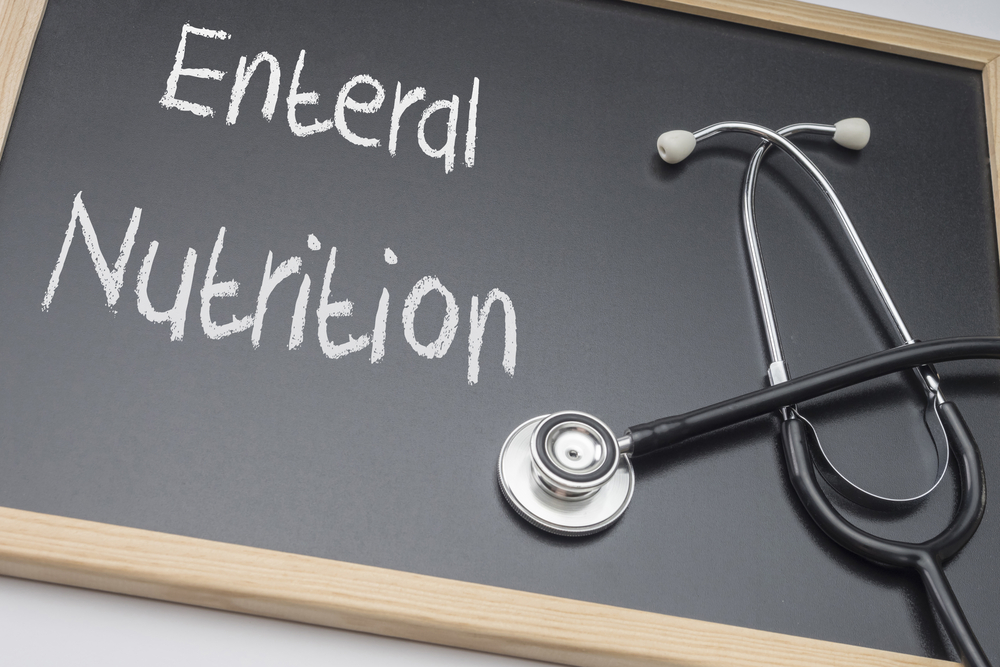 At Elixair Medical, we’re proud to supply patients and their caregivers with vital nutritional support products, and specialize in enteral formulas. If you’re new to providing at-home nutritional support, you might be wondering exactly what enteral nutrition is, and how it differs from the alternative, parenteral nutrition. We’ve provided an introduction to enteral and parenteral feeding below, and our staff are happy to answer any additional questions you may still have about providing vital at-home nutrition.
At Elixair Medical, we’re proud to supply patients and their caregivers with vital nutritional support products, and specialize in enteral formulas. If you’re new to providing at-home nutritional support, you might be wondering exactly what enteral nutrition is, and how it differs from the alternative, parenteral nutrition. We’ve provided an introduction to enteral and parenteral feeding below, and our staff are happy to answer any additional questions you may still have about providing vital at-home nutrition.
What Are Enteral and Parenteral Feeding?
“Enteral” and “parenteral” obviously sound very similar. However, they’re quite different, and it’s important that a patient receives the right type of nutritional support for their medical needs.
Enteral feeding refers to providing liquid nutrition that is still processed by the body’s gastrointestinal tract. This type of nutritional support is also simply referred to as a “feeding tube,” which is connected to the patient’s stomach or small intestine. In some patients, enteral feeding is simply a means of providing supplemental nutrition. However, for others, it provides the patient’s entire daily caloric intake.
Parenteral feeding, on the other hand, refers to liquid nutrition that is processed by the veins. This is a much riskier means of nutritional support and isn’t typically performed at home. Most people who receive parenteral feeding do so when recovering from a medical procedure, though some patients do receive long-term nutritional support in this manner. Parenteral feeding can often result in improved health and energy.
Who Needs These Different Feeding Methods?
Both enteral and parenteral feeding will be prescribed by a medical professional, but it can still be helpful to know which conditions commonly calls for these different types of nutritional support.
The purpose of enteral feeding is to reduce the risk of malnourishment in patients. It’s typically provided to those who aren’t able to eat enough calories in a day to receive the necessary vitamins, minerals, and nutrients. Without nutritional support, they would likely lose weight and experience worsening health issues. Conditions that often require enteral nutrition include:
This type of supplementary nutrition can often be provided at home, by a loved one who has been trained on how to properly provide enteral nutrition.
Parenteral nutrition, though also intended to prevent malnourishment, is primarily designed to assist those who have gastrointestinal issues that prevent them from properly digesting their food. This is why parenteral nutrition is injected into the veins, bypassing the gastrointestinal tract. Common medical conditions that require this type of nutritional support include:
Parenteral feeding provides sugar, proteins, carbohydrates, lipids, and other essential nutrients through an IV, providing the patient with the energy and hydration they need.
Types of Enteral Feeding
Now that you understand the differences between enteral and parenteral nutrition, let’s talk a little bit more about the different types of enteral feeding available. There are actually six primarily types of enteral feeding, and the right method for your loved one will be prescribed by their primary care doctor. The six types of enteral feeding include:
Parenteral feeding can also be broken into two subcategories—total parenteral nutrition (TPN) for long-term nutritional support, and peripheral parenteral nutrition (PPN) for short-term nutritional support during recovery from a medical procedure.
Get the Nutritional Products You Need
If your loved one’s medical condition require enteral feeding, you should anticipate a major life change for them and for yourself, if you’re their primary caregiver. Still, with the right nutritional support, your loved one can still lead a full life, receiving the feeding they need in the comforts of their own home. Contact Elixair Medical today to learn more about the nutritional support products we provide, including rotary pumps, gravity bags, spike sets, and more. We can help you to find the right products to provide your loved one with the daily nutrition they need.